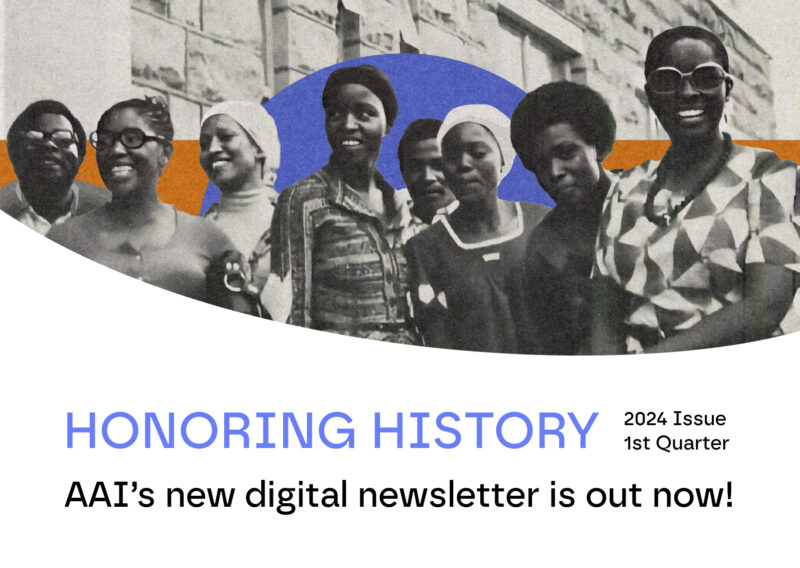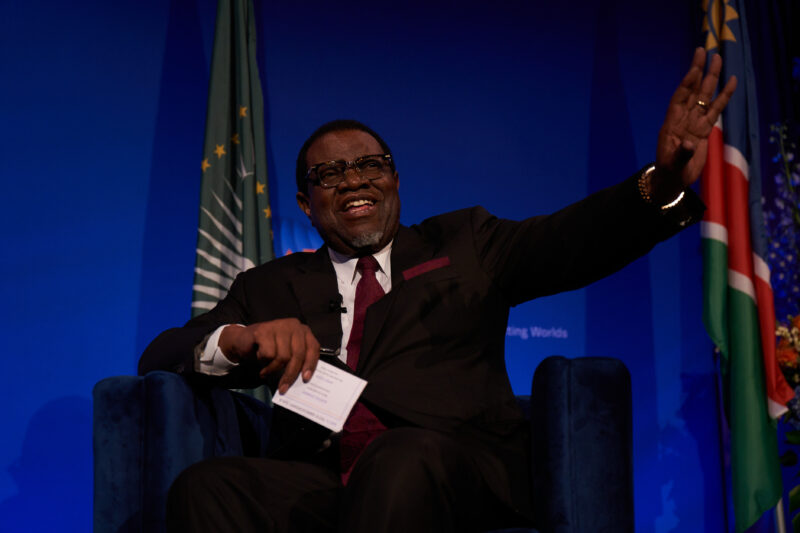Why Now Is the Time to Invest in Building Human Capital in African Tourism
By Melissa Howell
African tourism is much more than sandy beaches, wildlife safaris, cultural tours and cuisine. Tourism is a key driver of socio-economic progress through export revenue, job and business creation, and infrastructure development.
In 2013, more than 55 million tourists visited Africa, according to the World Tourism Organization. While some travelers have canceled trips in response to the recent Ebola outbreak, severely affecting three of the 54 African countries, millions more are expected to contribute to the more than $34 billion in receipts the region gained in 2013.
Investing in tourism in Africa produces returns in local economies well beyond the 8.4 million people the industry directly employs. The World Bank estimates that the tourism industry could potentially add 3.8 million jobs over the next 10 years in Sub-Saharan Africa.
Education is a critical piece of that investment. The Africa-America Institute (AAI), where I manage and support leadership training programs, is committed to providing advanced professional education and training to managers and workers in key sectors of Africa’s tourism industry.
Professional development training will ensure that a well-trained and committed staff is in place to provide high-quality travel experiences. Consistent quality increases the value of future tourist stays. Sustainable Travel International defines these locations as sustainable destinations, and provides access to strategies, research and best practices to support the government policy and reinvestment of profits that ensure quality service is in place to maintain this designation.
Yet, offering skills training in tourism is not only about hospitality, safety and customer service. Training in product valuation, asset management, donor engagement and investments are also necessary to maintain a viable industry that supports economic growth and job creation.
Economic returns from tourism flow through to industries such as construction, transport, telecommunications, manufacturing and financial services. The consumption of local products and foods stimulates the demand in agriculture, garment industries, and goods and services in informal sectors. This also leads to the development of small businesses.
With the number of travelers to emerging economies projected to surpass the number of those visiting industrialized economies within the next six years, now is the time to invest in Africa’s human capital in the tourism industry. An investment in tourism education is an investment in a nation’s brand and tremendous earning potential.
David Haigh, CEO of BrandFinance, one of the leading brand valuation consultancies globally, believes like “a properly managed brand [which] can provide the crucial leverage needed to thrive…nations can adopt similar techniques to capitalize on the economic growth that comes with proper positioning of a nation brand.” With well-trained staff as a traveler’s first and lasting point of contact, a strong tourism industry can position a nation’s brand to become a defining feature of global success.
One of the best places for professional development, networking and learning opportunities that strengthen the investment outlook for African tourism is the Africa Travel Association’s 39th annual World Congress. This conference, held in Kampala, Uganda, from November 11-16, will host tourism’s public and private sectors, including African governments, travel service and hotel providers, tour operators, travel agents, students, young professionals, media and affiliate industries.
This year, the Africa-America Institute will participate in the Educators in Tourism Forum, where we will discuss a range of topics in the travel industry from asset and property management to youth training and leadership retreats.
AAI hopes to tap into this growth industry by exploring ways to expand our world-class training programs to train African talent for management-level positions in the tourism sector.
Everyone can take part in strengthening the tourism sector on the continent. Even if you’re not among those working and investing directly in the tourism industry, join the 134 million international travelers who are expected to visit Africa by 2030. As you enjoy some leisure time and broaden your cultural horizons, you’ll also be contributing to the region’s economic development.
Melissa Howell serves as The Africa-America Institute’s Program Manager for the Transformational Leadership Program (TLP), which provides leadership training to NGO leaders in partnership with African colleges and universities.






